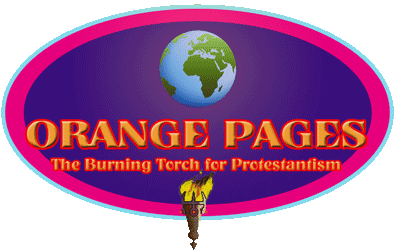
 |
THE BATTLE OF GARVAGH
The 26th July, 1813
![]()
|
Lammas Fair, Garvagh Also known as "The Fight in Garvagh". a report
from the time says: "The 26th July, 1813 is memorable as the day
on which a conflict occured between Loyalists and Ribbonmen. The latter,
who assembled to the number of 1500, attacked the house of a resident
named Davidson, where the Orange Lodges were in the habit of meeting.
The owner of the doomed premisies, warned of their intentions, had a few
trusty friends at hand to lend any necessary assistance. Three of the
Ribbonmen were killed outright, while others, mortally wounded, died soon
after. This did not end the trouble because a month later twelve men from
the neighbourhood of Garvagh were charged before Judge Fletcher at Londonderry
for murder. Three of the accused were aquitted and the others found quilty
of manslaughter." Of the aquittal the song says: "The Judge
he then would us condemn Had it not been for the jurymen Our grateful
thanks are due to them For they cleared the boys of Garvagh" The
ribbonmen found guilty, were acquitted at a later assizes when it was
stated "that both parties had become reconciled and were ready to
give bail for their future good behaviour." The turmoil and unrest in Europe during the early part of the nineteenth century found an echo in Ireland. On Monday 26 July 1813 the 'famous' Battle of Garvagh, County Derry, took place.
The small town of Garvagh, situated in the rural heart of the Borough,
is known as a noted angling centre. Garvagh was important from very early
times, but was destroyed by fire during the Battle of Garvagh, and rebuilt
as a Plantation town its broad main street and neatly planned buildings
are living evidence today of that period. A striking feature of the town
is the stone church tower with an attractive clock and castellations which
dominate the main thoroughfare.
|